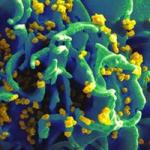
Research Topics
Arboviruses across the world are responsible for both well-established endemic disease and emerging diseases, as we have observed for dengue virus (DENV) and Zika virus (ZIKV) infections, respectively. Dengue remains among the most important globally re-emerging infectious diseases of the 21st century with 50–100 million symptomatic DENV infections occurring worldwide each year, resulting in approximately 500,000 hospitalizations, and 22,000 deaths. Although most arboviruses exist as a single discreet serotype, DENV is different and presents as 4 distinct serotypes (1, 2, 3, 4) which requires additional consideration for vaccine development.
Vaccine development
The primary objective of the Arbovirus Vaccine Research Section (AVRS) is the development and early clinical evaluation of vaccines for arboviruses. The section has primarily focused most recently on vaccine development for dengue, Zika, and Japanese encephalitis viruses, with previous research also directed towards West Nile virus, Rift Valley fever and California encephalitis viruses. Our comprehensive approach encompasses a bench-to-bedside research program involving vaccine discovery and the generation of recombinant live attenuated viruses that can be pre-clinically studied in mice, nonhuman primates, and mosquitoes before they undergo cGMP manufacture and evaluation in human clinical trials. Support of this vaccine pipeline requires research to understand the mechanisms of virus attenuation and immune presentation, as well as research to support new methods to evaluate immune responses following vaccination or infection.
Controlled human infection models
To support vaccine development for dengue virus (DENV) and Zika virus (ZIKV), we have created controlled human infection models that can safely be used to evaluate the protective efficacy of candidate vaccines for these pathogens. Effective models for DENV-2 and DENV-3 have been instrumental in moving our live attenuated tetravalent dengue vaccine into late-stage evaluation. Research is underway to develop models for addition DENV serotypes. A model for ZIKV human infection is undergoing clinical evaluation with the hope of informing vaccine efficacy and protection in the face of diminished natural transmission which makes traditional evaluation methods inadequate. In addition, controlled human infection models can enable the evaluation of therapeutic drugs and biological products designed to control flavivirus infection and disease.
Biography
Dr. Whitehead received his Ph.D. in microbiology from Oregon State University in 1994, working with Dr. Dennis Hruby and the study of vaccinia virus proteolytic processing. Following early postdoctoral training at Rockefeller University, NY, he joined the Laboratory of Infectious Diseases (NIAID) in 1995 as postdoctoral fellow with Dr. Brian Murphy to work on the development of vaccines against respiratory syncytial virus. Following transfer of several vaccine candidates to Wyeth Lederle in 1999, his attention turned to the development and clinical evaluation of vaccines for DENV and other vector-borne viruses in the same laboratory as a staff scientist. In 2018, Dr. Whitehead continued his vaccine development as a member of the Laboratory of Viral Diseases (NIAID) and in 2020 became a senior investigator appointed to lead the Arbovirus Vaccine Research Section.
Selected Publications
- Kallas EG, Precioso AR, Palacios R, Thomé B, Braga PE, Vanni T, Campos LMA, Ferrari L, Mondini G, da Graça Salomão M, da Silva A, Espinola HM, do Prado Santos J, Santos CLS, Timenetsky MDCST, Miraglia JL, Gallina NMF, Weiskopf D, Sette A, Goulart R, Salles RT, Maestri A, Sallum AME, Farhat SCL, Sakita NK, Ferreira JCOA, Silveira CGT, Costa PR, Raw I, Whitehead SS, Durbin AP, Kalil J. Safety and immunogenicity of the tetravalent, live-attenuated dengue vaccine Butantan-DV in adults in Brazil: a two-step, double-blind, randomised placebo-controlled phase 2 trial. Lancet Infect Dis. 2020;20(7):839-850.
- Nogueira ML, Cintra MAT, Moreira JA, Patiño EG, Braga PE, Tenório JCV, de Oliveira Alves LB, Infante V, Silveira DHR, de Lacerda MVG, Pereira DB, da Fonseca AJ, Gurgel RQ, Coelho IC, Fontes CJF, Marques ETA, Romero GAS, Teixeira MM, Siqueira AM, Boaventura VS, Ramos F, Júnior EE, de Moraes JC, Whitehead SS, Esteves-Jaramillo A, Shekar T, Lee JJ, Macey J, Kelner SG, Coller BG, Boulos FC, Kallás EG, Phase 3 Butantan-DV Working Group. Efficacy and safety of Butantan-DV in participants aged 2-59 years through an extended follow-up: results from a double-blind, randomised, placebo-controlled, phase 3, multicentre trial in Brazil. Lancet Infect Dis. 2024;24(11):1234-1244.
- Kirkpatrick BD, Whitehead SS, Pierce KK, Tibery CM, Grier PL, Hynes NA, Larsson CJ, Sabundayo BP, Talaat KR, Janiak A, Carmolli MP, Luke CJ, Diehl SA, Durbin AP. The live attenuated dengue vaccine TV003 elicits complete protection against dengue in a human challenge model. Sci Transl Med. 2016;8(330):330ra36.
- Whitehead SS, Durbin AP, Pierce KK, Elwood D, McElvany BD, Fraser EA, Carmolli MP, Tibery CM, Hynes NA, Jo M, Lovchik JM, Larsson CJ, Doty EA, Dickson DM, Luke CJ, Subbarao K, Diehl SA, Kirkpatrick BD. In a randomized trial, the live attenuated tetravalent dengue vaccine TV003 is well-tolerated and highly immunogenic in subjects with flavivirus exposure prior to vaccination. PLoS Negl Trop Dis. 2017;11(5):e0005584.
- Katzelnick LC, Fonville JM, Gromowski GD, Bustos Arriaga J, Green A, James SL, Lau L, Montoya M, Wang C, VanBlargan LA, Russell CA, Thu HM, Pierson TC, Buchy P, Aaskov JG, Muñoz-Jordán JL, Vasilakis N, Gibbons RV, Tesh RB, Osterhaus AD, Fouchier RA, Durbin A, Simmons CP, Holmes EC, Harris E, Whitehead SS, Smith DJ. Dengue viruses cluster antigenically but not as discrete serotypes. Science. 2015;349(6254):1338-43.
Related Scientific Focus Areas
This page was last updated on Wednesday, August 20, 2025


